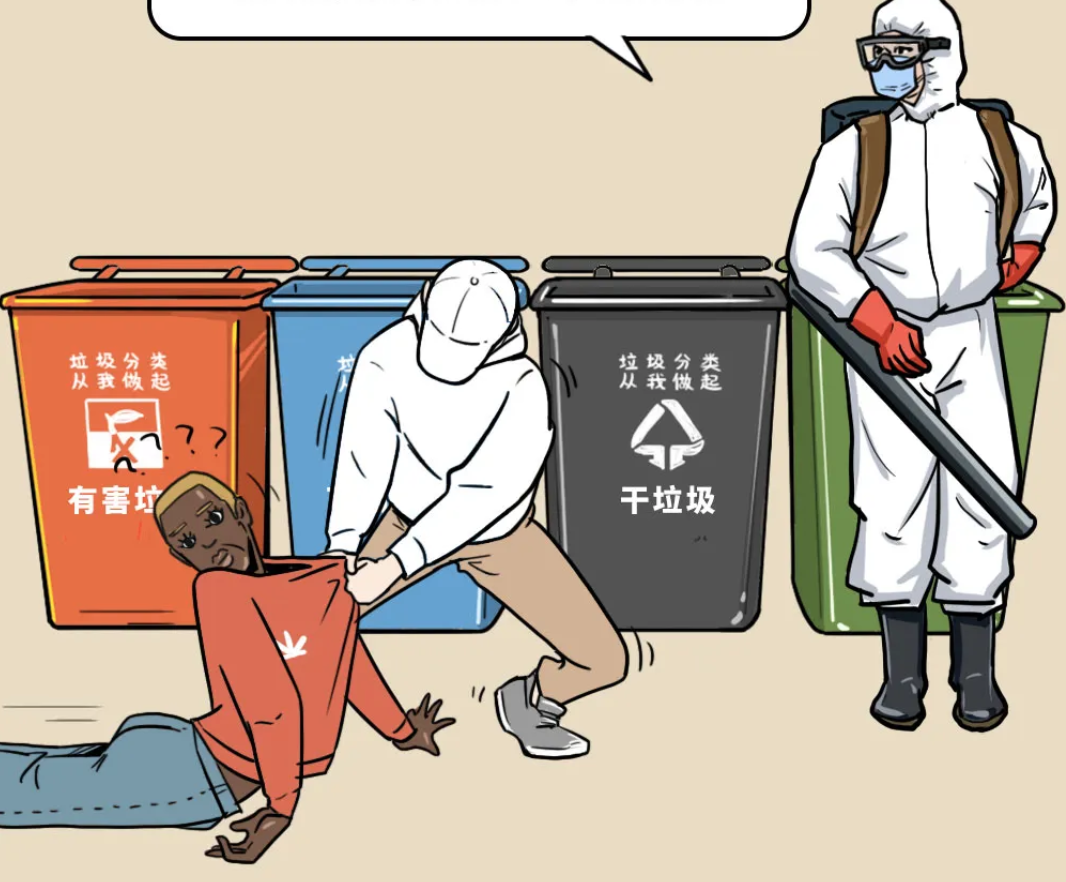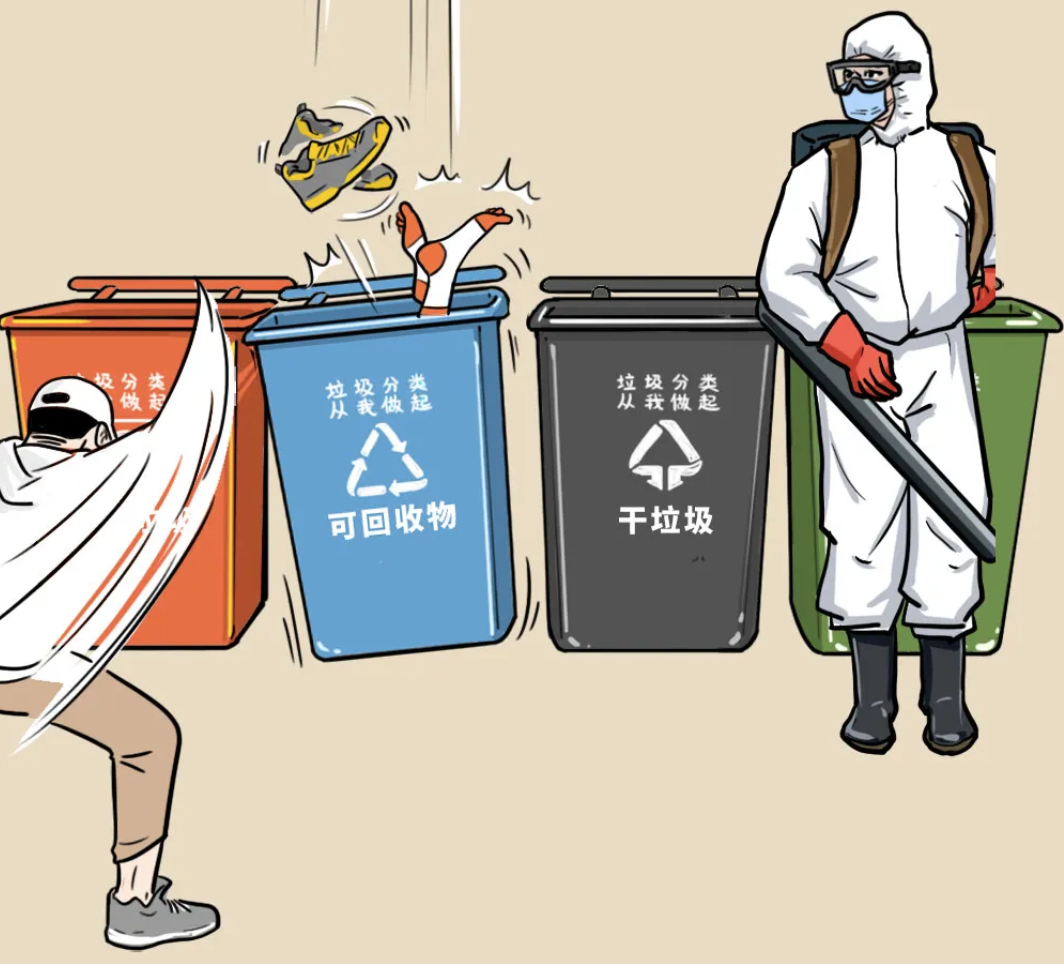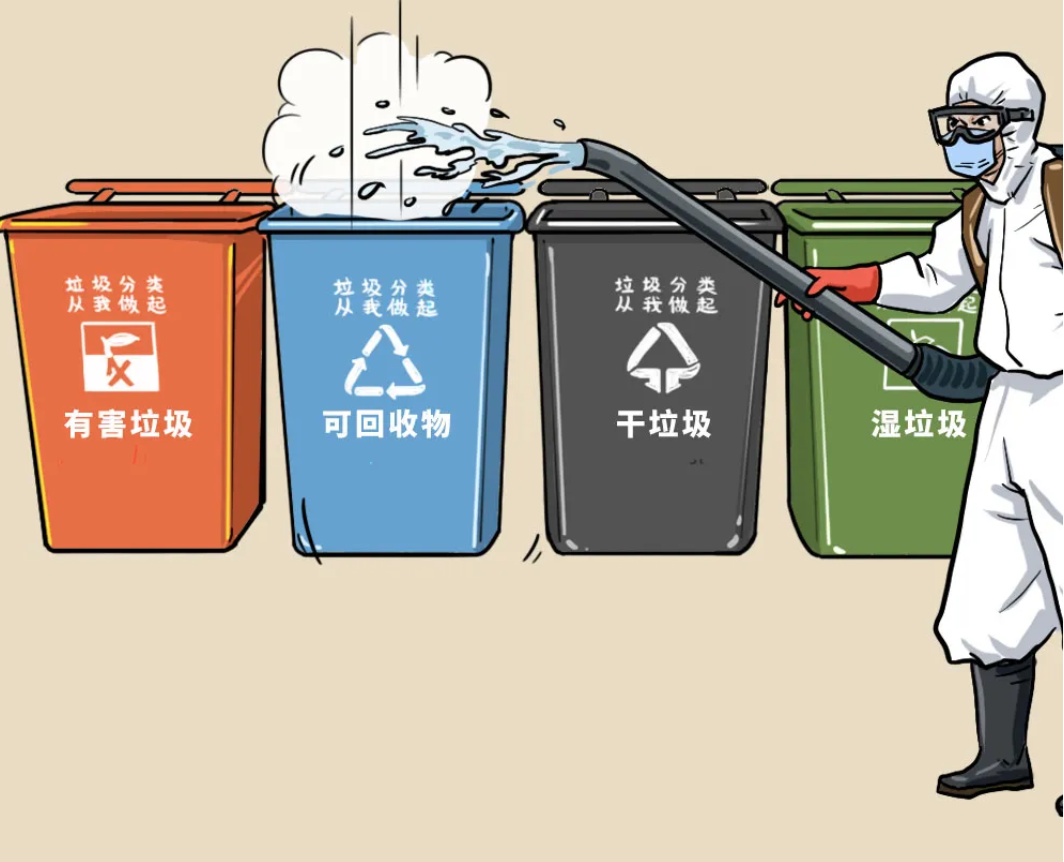Chinese cartoon depicts rule-breaking foreigners as trash to be sorted
Driven by a string of news stories that put foreigners in a negative light for their irresponsible behavior during the outbreak, Chinese social media has been flooded with hateful and sometimes violent comments targeting the expatriate community. Over the weekend, the intolerance reached a fever pitch with a cartoon created by WeChat blog 锦鲤青年 (Koi Youth jǐnlǐ qīngnián), which places foreigners who “seek special treatment and run wild” in China into various categories, and depicts them as trash to be disposed of.

While China is no stranger to xenophobia and racism, the COVID-19 pandemic has taken hostility toward foreigners to an alarming new level. Driven by a string of news stories that put foreigners in a negative light for their irresponsible behavior during the outbreak, Chinese social media has been flooded with hateful and sometimes violent comments targeting the expatriate community. Over the weekend, the intolerance reached a fever pitch with a cartoon created by WeChat blog 锦鲤青年 (Koi Youth jǐnlǐ qīngnián), which sorts foreigners who “seek special treatment and run wild” in China into various categories, and depicts them as trash to be disposed of.
Published on April 2, the cartoon was featured in a WeChat post (in Chinese) titled “An illustrated handbook on how to sort foreign trash” (洋垃圾分类图鉴 yáng lājī fènlèi tújiàn). The artwork shows a worker in a full protective suit dealing with “foreign trash” and tossing it in garbage bins for wet, dry, recyclable, and hazardous waste.
There are a total of nine categories in the drawings, many of which contain specific references to recent news about foreigners coming under fire amid the coronavirus:
1. A foreigner who refuses to wear face masks and offends medical workers after coming to China as the virus spreads overseas.
Verdict: Wet trash for “returning kindness with ingratitude.”
2. A foreign basketball player who orders food delivery in the middle of the night while staying at a quarantine hotel.
Verdict: Recyclable trash for “abusing his privilege” but having the chance to be “educated” given his value to the Chinese team he plays for.
Reference: Ex-NBA star Young sorry for China coronavirus quarantine row.

3. A foreigner who breaks home quarantine and goes out for a jog after traveling abroad.
Verdict: Dry trash for “exploiting freedom” at the expense of other people’s safety.
Reference: Bayer fires Australian Chinese employee after she breaks home quarantine in Beijing (note that the offender was ethnically Chinese).
4. A foreigner who illegally enters China to avoid the outbreak at home.
Verdict: Recyclable trash for “selfishly putting Chinese people in danger.”
5. A foreign “romance scammer” targeting Chinese women for sex and cash.
Verdict: Hazardous trash for committing heinous crimes in the name of “an open-minded outlook on dating.”
6. A foreigner who sings praises of China in public but secretly posts anti-China views on the internet.
Verdict: Wet trash for being two-faced and using freedom of speech as a defense when challenged.
7. A foreigner who violates Chinese quarantine regulations by leaving home to pick up a delivery without permission.
Verdict: Dry trash for “not conforming to Chinese rules” while in China.

8. A foreigner who tested positive for COVID-19 attacks health workers.
Verdict: Hazardous trash for “reciprocating generosity with animosity.”
9. A foreigner who cuts in line for coronavirus testing and tells Chinese people in the queue to “get out.”
Verdict: “A giant piece of hazardous trash” that needs to be deported immediately.
The author concludes the cartoon with a few messages for “ungrateful foreigners” who have taken advantage of China’s “kindness” in the global fight against the pandemic:
China has contributed tremendously to the world during the crisis and sent supplies to virus-stricken countries. Some “foreign trash” have taken China’s kindness for granted! But you need to realize that it’s not our obligation to help you!”
We don’t discriminate against any foreigners but at the same time, we will never condone any misconduct by foreigners.
As concerns over imported COVID-19 infections grow in China, so have fear and mistrust of foreigners, especially those recently returned from abroad. The xenophobic tone of the cartoon echoes scores of recent personal accounts of foreigners being confronted with uncomfortable experiences that include being denied services at local businesses and being called derogatory names in public.





